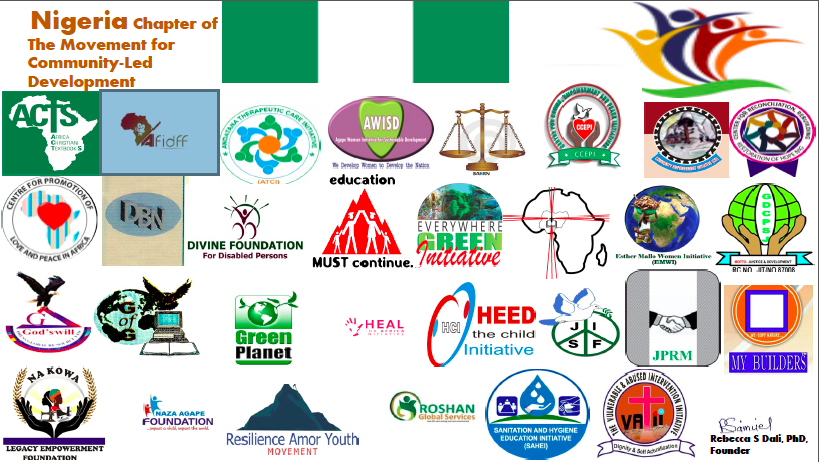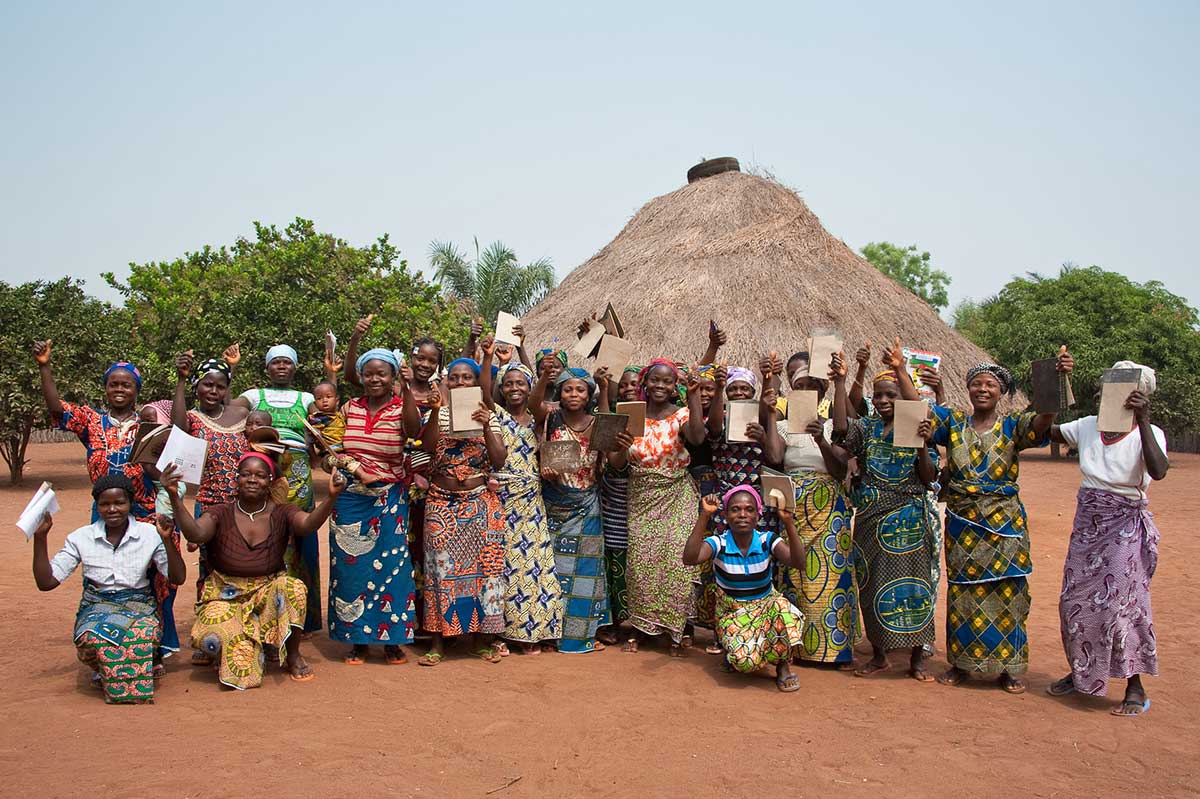Feature Photo Credits: Johannes Odé, The Hunger Project
By Aisha Hamza on the Sanitation and Hygiene Education Initiative. Aisha and her organization are founding members of a new network that is channeling “new power” to transform their country.
Last year, my organization helped found a new coalition: the Nigeria Community-led Development Organization (CLDO). We are 30 civil society organizations bound by a common dream for our country: community well-being as the norm, marked by social, mental, and physical health for every individual and of the collective, living in harmony with the natural environment.
Under the leadership of internationally renowned humanitarian Dr. Rebecca Dali, we formed this group because we can see that the current models of development, both domestically and internationally are not working to transform our society from its current state of disarray and increasing violence into something better. We know, first hand, that Nigerian people have the capacities and the potential to co-create and sustain this better future. We also know that “no community is an island”–which is why we have come together.
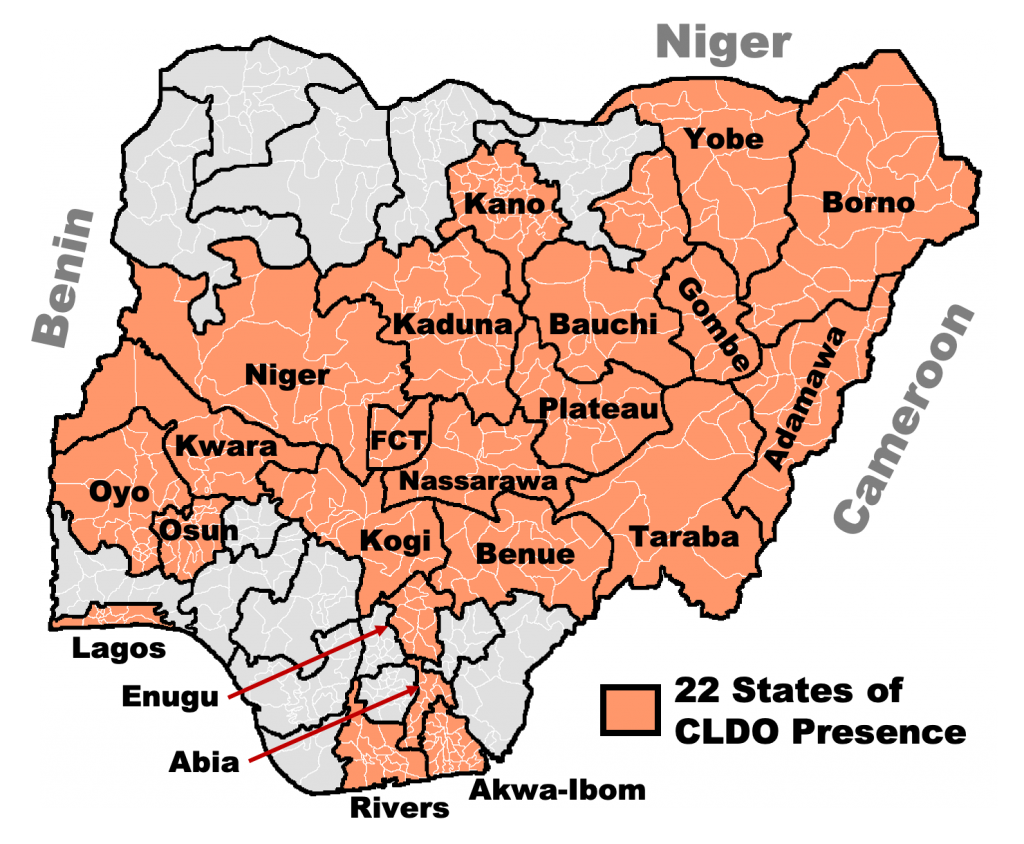
Our network members are trusted and proven: we have known each other for decades. Most member organizations are from ten to 30 years old, with eighteen led by women. Our leaders are visionary and courageous, as exemplified by Dr. Rebecca Dali, who was named the United Nations Global Humanitarian of the Year in 2017. By necessity, and by nature, we are innovative–with our most recent example being the formation of this very network. We have the vision, the wisdom, the experience, and the love: so what is stopping us? Our inability, as individual organizations be heard. To scale up. To get the big picture pieces in place that can enable us to transform the everyday level of Nigerian people’s lives.
We know that the Sustainable Development Goals (SDGs) will not become reality unless our envisioned transformation happens. One where people’s individual and collective capacities are marshalled so they can create a rich vision for themselves, and design pathways to achieve those. Most capacities are there to be tapped, while others need to be enhanced, including through interconnecting them.
The planting of a new Nigeria begins with 1000 trees
My organization represents a focal point of action, within our network of 30, within our country of millions of such focal points. The Sanitation and Hygiene Education Initiative (SAHEI) is working on SDG Goal 13, climate action, and Goal 17, partnerships to achieve the goals. In one example, we’ve sensitized the woodseller association leaders and their elected executives in Maiduguri, resulting in a donation of 1000 neem tree seedlings from the Ministry of Environment and the seedlings are now planted, and tended. We take this action to: mitigate climate change-induced drought, balance the ecosystem, and reduce the excessive heat linked to diseases like meningitis in Maiduguri.
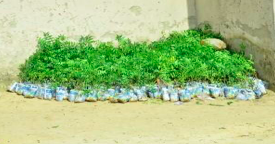
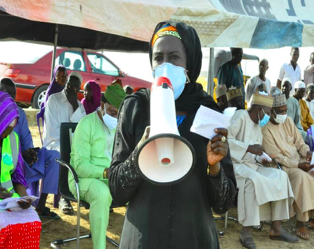
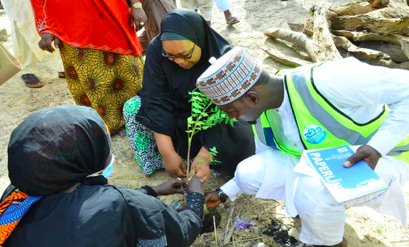
We’ve established SDG clubs in six secondary schools and two camps for Internally Displaced People, and mobilized 360 youth across the northeast on SGDs and innovative thinking. The camp community’s work is called Waste to Wealth: they produce innovative briquettes from waste materials littered all over the camps. In doing so they have reduced the rate of cutting trees, reduced the exposure of women and girls when searching for firewood for cooking, offered economic empowerment, and offered dignity and excitement to all involved. As is the reality of people’s complex lives, what started with one SDG has ended up serving others.
This small example represents so many that could be multiplied exponentially, through bottom-up or rather inside-out, locally-led efforts. The capacities are there, the will, the ideas, the hopes. The complex potential.
Our drive to transform Nigeria begins with 30 local organizations
We formed our Community-led Development network to enable more of this kind of grassroots-driven co-creation, partnership, and action. As is true for all ambitious, world-changing efforts: we need support from our government at all levels, as well as partnership with the private sector of our country, faith institutions, cultural leaders, international stakeholders, academia, and others. And yes, we need funding. With that alone we could scale up this project to our schools and communities across Nigeria–as well as dozens of other worthwhile and interconnected efforts that are part of our rich collaborative of thirty excellent members, and the millions of community members and constituencies they represent.
My humble example may seem small within my big country, but to the people involved, it is changing their lives. Imagine it scaled up and out, locally adapted again and again using systemic change models: this could–and would–foster meaningful transformative change for Nigeria. Or any country. Help us make it happen.
